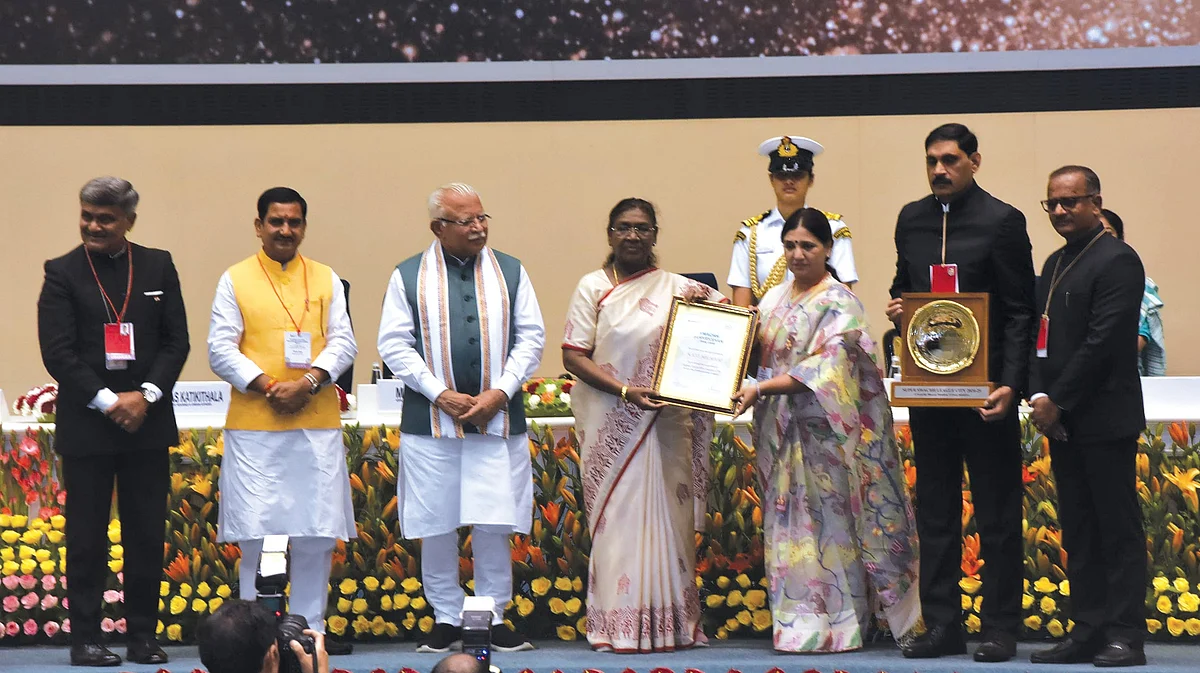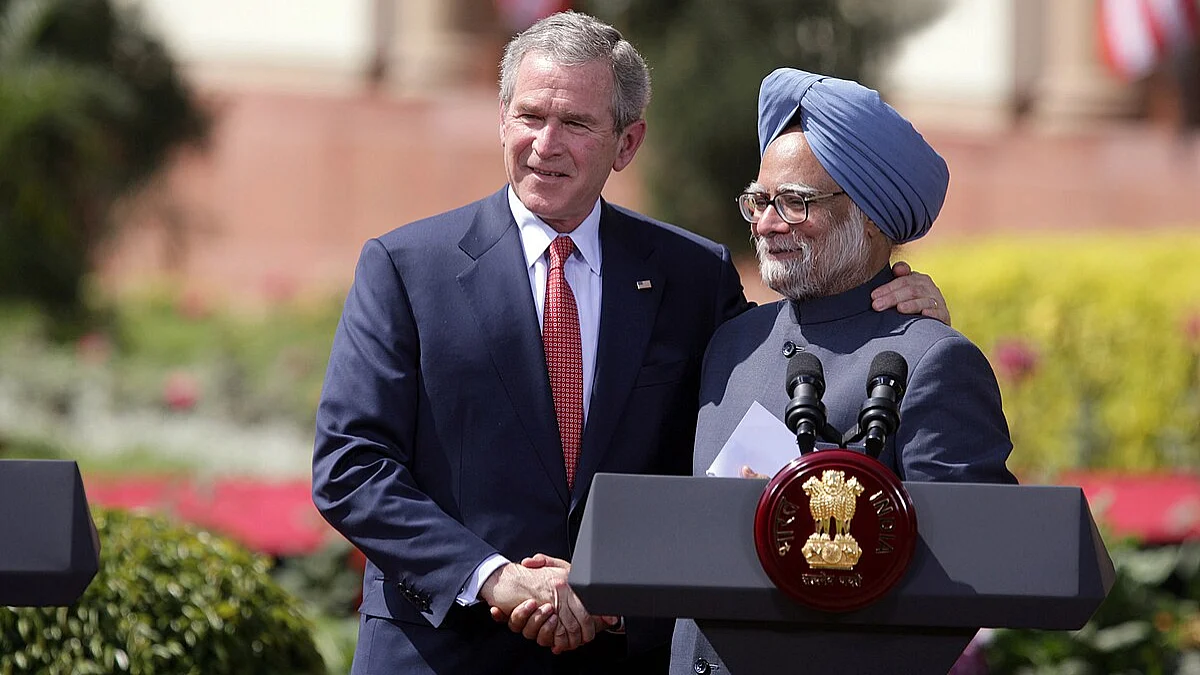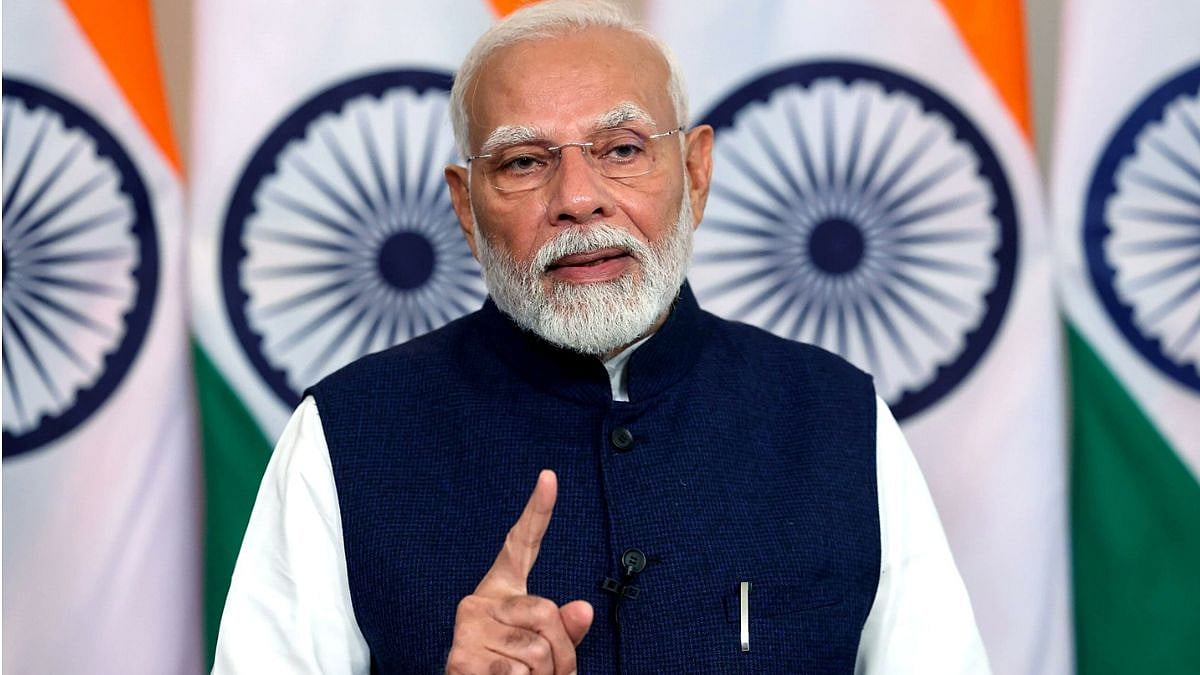Walk down the stairs of any decent apartment building in the country and look at the dustbins outside the doors. Why are most of them so dirty?
People like you and me, living in these homes, are by and large well off with two or three cars and one or two two-wheelers. Our children go to the best schools and colleges and then fly out to a prosperous nation for higher education and employment. There is little that is lacking. So what explains those dirty, unwashed dustbins in front of our homes?
Eight years after Prime Minister Narendra Modi’s laudable Swachh Bharat Abhiyan, there is a lot to be done — not by the government, not by the poor of India, but by people like you and me.
The Swachh Bharat Abhiyan (Clean India Mission) was launched in 2014 to eradicate open defecation and improve solid waste management. After an aggressive campaign to construct toilets, the government declared the country ODF — open defecation free — in 2019. The NITI Aayog's report, SDG-India: Index and Dashboard 2019-2020, said six million villages, 633 districts and 35 states/Union territories “were verified ODF in December 2019”.
Though this claim has been contested by credible entities, what cannot be discounted is the sincerity of the effort and the fact that a lot more needs to be done on mission Swachh Bharat.
Having entered its ninth year, the Clean India Mission now needs to move into a higher gear with a fresh focus on public toilets; staff toilets in government offices and in restaurants; garbage segregation and management; and a people’s drive to stop garbage burning.
Public toilets in India are perhaps the filthiest in the world. One cannot imagine anything worse than what one gets to see in our country. Kolkata has some of the cleanest public toilets which are well-lit and well-maintained with round-the-clock attendants in busy marketplaces. The same can be said of many Sulabh Shauchalayas in Mumbai.
Among the worst public toilets in the country are the ones in Pune, an otherwise prosperous city that boastfully refers to itself as ‘the Oxford of the East’. Yes, Pune is one of India’s more progressive cities with a tradition of learning, research and social reform. The city has nearly two dozen universities, serves as one of the biggest IT hubs in the country and as headquarters of the Southern Command of the Indian Army. But look at the state of public toilets in this city and you will feel ashamed.
Even as this was being written, on Oct 3, Hindustan Times ran a story with the headline, ‘Punekars complain about dirty toilets, garbage at Sinhagad’, one of the iconic forts of Chhatrapati Shivaji who is venerated in Maharashtra. This in a city where Adar Poonawalla, billionaire CEO of the Serum Institute of India, pumped in Rs120 crore of his personal funds to launch the Adar Poonawalla Clean City Initiative way back in 2015. Pune also has the Swach Cooperative, the country's first cooperative of waste pickers, and yet, heaps of garbage are an eyesore in many parts of this emerging megapolis. It is no wonder that the city's national solid waste management ranking (Swachh Survekshan) in the latest survey (2022) slipped from 5 to 9.
Toilets in popular restaurants, at prominent petrol pumps run by oil companies and their dealers, and in government offices are among the worst. The cleanest ones are in malls, understandably so, because malls require high footfalls to survive and that won’t happen unless you provide clean restrooms.
Years ago, Sanjay Deshpande, a prominent builder in Pune, adopted a public toilet near his office on Karve Road, paid for an attendant and regular maintenance, and ensured it was clean and convenient, especially for women. His social initiative got him much appreciation and was written about in the media.
Simple solutions exist and need to be implemented to realise the dream of a swachh Bharat. The reason this is not happening is also simple: the typical Indian attitude is to blame the government for everything and see no responsibility for oneself. So we always wait for some bright spark in the bureaucracy to bring about change: a 'Demolition Man’ GR Khairnar, a 'Plague hero' SR Rao of Surat, or the BMC team that flattened the Covid-19 curve in Dharavi.
The other reason Swachh Bharat has still not made a visible impact is our blindness to the filth around us. Just as we don’t see anything wrong with our dirty, unwashed dustbins in front of our homes, we don’t mind if our holy cow feasts on stinking, putrefying heaps of garbage. Helpless stray cattle are abandoned in cities and towns by their owners as their udders have dried up and they no longer give milk. The poor animals have no choice but to feed on garbage for survival. How can people worship an animal and then let it feed on garbage?
Diwali, the biggest festival of India, is also the time when homes are cleaned to welcome Lakshmi, goddess of wealth. What better occasion to take Mission Swachh Bharat personally and nationally into a higher orbit?
Seventy-five years after Independence, we ought not to be okay with the state of our filthy public toilets. We need to demand clean washrooms at petrol pumps from our oil corporations and from the restaurants we patronise.
Our cities need to follow the example of Indore where citizens and the civic body have teamed up to once again grab top rank (for the sixth time) as India’s cleanest city and the first seven-star garbage-free city.
The state of affairs around us can change only if we change individually, bringing us back to those immortal words: be the change you want to see.
Abhay Vaidya has worked as a senior journalist with a number of leading publications










